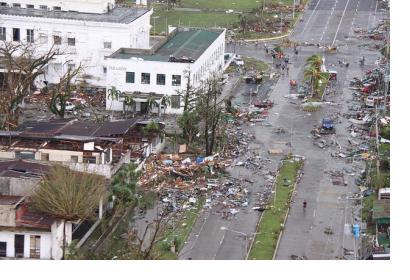Recognizing the importance of space-based information for disaster risk reduction, the United Nations Economic and Social Commission for Asia and the Pacific (ESCAP) and the Japan Aerospace Exploration Agency JAXA jointly organised the meeting "Policy Makers Dialogue and Capacity Development for Disaster Risk Reduction and Management in Asia-Pacific". Taking place in Bangkok, Thailand from 23 to 25 September 2014, the event attracted policy makers from disaster risk reduction and management, stakeholders and authorities dealing with Information and Communication Technologies (ICT), space technology and Geographical Information System (GIS) applications as well as experts on innovative technologies, UN agencies and private sector representatives.
Under the theme "Harnessing Information and Space Technology and Geographical Information System", the participants discussed relevant space technologies in the context of disaster risk reduction.
More precisely, the participants addressed the following topics:
- Applications of ICT, Space Technology and GIS for Disaster Damage Assessment and Economic Resilience to Natural Disasters
- Integration of ICT, Space Technology and GIS for Disaster Preparedness and In Situ Disaster Warning and Response
- Strengthening Regional Cooperative Mechanisms on the Utilization of Space Technology and GIS for Disaster Management
UN-SPIDER participated in the meeting in order to highlight the programme's activities. Shirish Ravan of UN-SPIDER was one of the keynote speakers and a panel member for a group which focused on “Strengthening Regional Cooperative Mechanisms on the Utilization of Space Technology and GIS for Disaster Management”.
This meeting contributed to the resolution 69/11 on "Implementation of the Asia-Pacific Plan of Action for Applications of Space Technology and Geographic Information Systems for Disaster Risk Reduction and Sustainable Development, 2012-2017" adopted by ESCAP Member States in 2012.
Furthermore, the outcomes of the dialogue will be brought to the Third World Conference on Disaster Risk Reduction (WCDRR) in March 2015 in Sendai, Japan, as a space applications' perspective in the post-2015 framework for disaster risk reduction (HFA2), as well as the Asia-Pacific ministerial conference, which is planned to be organized in 2016 to evaluate the progress of the implementation of the Asia-Pacific Plan of Action.

